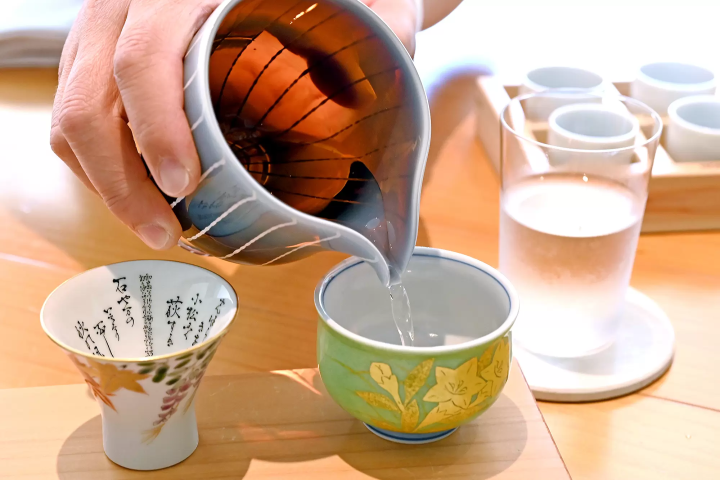Japanese Pronunciation and Polite Speech

Is Japanese the world’s most difficult language? Will English work in Japan? We’ll introduce to you basic information about the Japanese language.
What Kind of Language is Japanese?
Do you know what kind of language Japanese is? I'm sure many of you have heard that it's difficult, but is it really that difficult? In this article we'll introduce to you some basic information about Japanese and other articles on how to correctly pronounce Japanese.
Read also:
Basic Japanese Phrases You Can Use While In Japan!
Ask For Directions In Japanese! 14 Phrases You Need To Know
Thank You! 7 Japanese Phrases To Express Your Gratitude
13 Japanese Phrases For Shopping In Japan
13 Japanese Phrases You Can Use At Restaurants
10 Japanese Phrases You Can Use At A Hotel
10 Japanese Phrases To Use At Museums And Sightseeing Spots
14 Japanese Phrases To Help You Out When You Run Into Trouble
Japanese Phrases To Use When You're Sick Or In The Hospital
The World’s 9th Largest Language!
There are about 127 million native Japanese speakers. It's ranked 9th out of the world’s approximately six thousand languages (native speaker population ranking).
The World’s Most Difficult Language? Check Out the Difficult Points!
Some people have heard that Japanese is the most difficult language in the world, but I don't think that's true.
What's the Word Order?
Japanese follows the SOV (Subject, Object, Verb) formula, just like half of the world’s languages.
Watashi wa (subject) ringo wo( object) tabeta (verb). However, you often don't use the subject. "Ringo wo tabeta" is more natural.
The Tokyo version of I ♥ NY is Watashi ♥ Tokyo.
Shirts saying the above are sold, but Tokyo♥ is the more natural Japanese way of speaking.
There are two difficult points to Japanese.
There are 3 types of Japanese letters
Kanji, which originate from Chinese characters, plus hiragana and katakana which are unique to Japan, are the three types of charactersused in the Japanese language.
*The Roman alphabet (romaji in Japanese) is also used.
Hiragana and katakana each have 48 letters. While there are thousands of Chinese characters, about 2000 kanji are regularly used in Japan. When studying Japanese, studying kanji is the without a doubt the most difficult point.
Unlike the alphabet, each kanji has its own unique meaning or meanings. If you are reading the ABC’s in English, you don’t necessarily think about what A means, but if you study kanji, you will be able to understand the meanings of the words.
Even If Someone's A Year Older Than You, The Words You Use Change! What's Keigo?
In Japanese there is casual speech that you use towards family and friends your age (the "normal form" which you learn in Japanese classes) and a polite way of speaking to people who aren’t family or friends your age. This is called keigo. Even among young people, when they first meet someone they will tend to speak keigo, but after getting to know one another a bit they will ask:
tamego demo ii? [tamego demo i:] (Is it okay to speak casually?)
After essentially asking whether it is alright to stop speaking so formally, they will often then switch to speaking more casually together. The casual way of saying things versus the polite form is differentiated by the use of completely different expressions.
A lot of people studying Japanese say this is very difficult. However, it’s even difficult for Japanese people to use keigo without making mistakes, so there’s no need to be so concerned.
*The Japanese phrases introduced in MATCHA articles are all written in polite form unless otherwise noted. When traveling you will find that there are many more instances where you will need to use polite Japanese than not.
Honma?! Tokyo and Osaka Use Different Words! What is Kansai-ben?
Japanese has a lot of different ’ben’, or dialects. While differences in intonation from standard Japanese are referred to as ‘namari’ (accent), there are also times where Japanese dialects not only have different intonations but use other words, or have different meanings to words used in other regions of Japan.
To put it simply, within Japanese, there are various versions of the language to choose from, which vary by region, from standard Japanese. One of the many unique points of Japanese is that there are this many different dialects.
Do you have any plans to travel to Osaka or Kyoto? In the Kansai region, (the region around Osaka and Kyoto), the dialect known as Kansai-ben is spoken. Although we may generalize it as Kansai-ben, there are actually different versions within this dialect, Osaka-ben, Kyoto-ben and others. For example:
Honma? means, honto? (really?) in Kansai-ben.
*Don`t worry though, the standard Japanese that you studied at your Japanese classes will be readily understood in the different regions.
Will English be Understood in Japan?
In Sightseeing-centric Regions of Tokyo
There aren't many people in Japan who can speak English fluently. However, at sightseeing locations there`ll be people at the station who can speak English and restaurants will have English menus. Also, even if the store clerks aren't fluent in English, often times they will do their best to communicate in English.
In many cases the station directions, signs, and sightseeing locations signs and displays will be written in English, Chinese, and Korean. Recently displays written in Portuguese and Vietnamese have been increasing in number too.
Outside of Tokyo, both Osaka and Kyoto each welcome many visitors a year and have many signs and displays available in multiple languages. In other regions, however, there are many instances where English isn't understood whatsoever.
How Can I Get Someone to Understand my English?
While many Japanese people might not be able to speak English, everyone had to learn it in school, so there are many who understand English words.
1. Speak slowly in short sentences.
2. Speak in a slightly higher voice than usual, not louder (especially males).
3. Show writtenwords (printed, not cursive handwriting).
If you do these three things, what you’re trying to say will be understood by people who "can’t speak English".
How to Read the Pronunciation in the Japanese Language Series Articles
We have put together a convenient series of nine articles on useful Japanese phrases for different situations:
Basic Phrases
Asking for Directions
Hotel Phrases
Sightseeing Phrases
Restaurants Phrases
Shopping Phrases
How to Say Thanks
When in Trouble
Illness or Health Problems
In order to make these articles easy to read even for those who have never studied a single word of Japanese, the way of reading/saying each expression has been included in brackets alongside each phrase. Here we will explain how to read these pronunciation guides.
*Instead of using the Japanese romaji that is often used in Japanese study books, we wholeheartedly made the effort to display the actual pronunciation.
The Basics of Pronunciation
If the symbol [:] is not present, the vowel sound should not be stretched out or said emphatically. Basically, no matter which vowel it is, they are given the same length and same strength when it comes to pronunciation unless this mark is included.
When asking a question, raise the tone of the ending slightly. It can be considered rude if you raise it too high.
The Basics of Vowels: A I U E O
If you’ve studied Spanish or Italian, the Japanese pronunciation to the vowels A I U E O will sound similar. However, please keep the following in mind.
[a] is similar to the English ‘uh’ sounds in words like gun, study, and tunnel, but again, do not stretch out the sound.
[i] is similar to the English ‘ih’ sounds in words like city and picture.
[u] is similar to the English ‘u’ sounds in words like put and push; the only difference being that you do not round your lips with the sound.
[e] is similar to the English ‘eh’ sounds in words like egg and red.
[o] is similar to the English ‘aw’ sounds in words like dog, God, soft.
There are some exceptions, but generally the the pronunciation of vowels is as explained above.
The pronunciation doesn’t change based on the combination of words either. For example, if you say [auto] it’ll be pronounced as [a][u][to]. The pronunciation doesn’t become like the auto part of the English word ‘automatic’.
Or, for example, if you see the word ‘made’ written in Japanese, it isn’t pronounced the same as it is in English: instead of made, it is pronounced [ma][de].
Warnings About Consonants
[t]
[t] is similar to the English ‘t’ sound in the word start, but be careful not to sharpen the tip of your tongue.
[tsu]
The combination of [tsu] seems daunting at first, but if you can say English words like cats and boots, you can easily read words with ‘tsu’ in them. Make sure not to separate the t and su.
[d]
[d] is similar to the English ‘d’ sound like in Canada, but again, be careful not to sharpen the tip of your tongue.
[hi]
[hi] is not pronounced like ‘high’, rather you should almost close your mouth and breath out, as though you were trying to push against the roof of your mouth. For those that have studied German, it is pronounced the same as the German ‘i’. Alternatively, just say the English word ‘he’ (he, as in he, she).
[sh]
[sh] is similar to the English ‘sh’ sound in words like she, sheep, but pronounced without rounding your lips.
[y]
[y] is similar to the English ‘y’ sound in words like yacht or you.
[j]
[j] is similar to the English ‘j’ sound in the word jacket.
[f]
[f] in Japanese sounds similar to the sound made when blowing out a candle. You pronounce the Japanese [f] by bringing your upper and lower lip closer together, but be careful not to bring your upper teeth and lower lips together too.
[ch]
[ch] is similar to the English ‘ch’ sound in words like cheese, but again, don’t round your lips too much. It is not like the ‘ch’ sound in words like macchiato though, or the German word ‘ich’.
[r]
[r] in Japanese has a very different sound; it is a shorter and lighter pronunciation of the rolling [r] sound in Spanish and Italian or a vaguely pronounced Japanese [d] sound.
In Japanese the English sounds of both ‘l’ and ‘r’ are pronounced the same as [r], while both ‘b’ and ‘v’ in Japanese are pronounced as the Japanese [b]. Both become the strong [b] sound, meaning that the English word ‘love’ becomes ‘rabu’ when pronounced in Japanese.
[w]
[w] is similar to the English ‘w’ in words like went, but is pronounced more weakly and with less of a roll to the tongue.
Symbols
っ
Generally think of the Japanese っas a silent mark.
For those that have studied music, it’s similar to the staccato. However, please be careful that the sound preceding it does not become too strong or higher in pitch. This mark indicates that the following consonant is repeated in the word.
For example: きって becomes kitte when written in Roman letters and is pronounced as follows:
[:]
As mentioned briefly earlier, [:] is used to indicate that the vowel sound of a given word should be stretched out. For example:
[zu] sounds like the end of the word ‘goods’, but if you write [zu:], it sounds like the English word ‘zoo.’
Let's Enjoy Japanese!
This article is a little long, but as you can see, basic Japanese conversational expressions and pronunciation need not be that difficult. Speak with a smile and Japanese people are bound to be happy that you have made the effort to speak to them in their language. Don’t fear making a mistake and have fun speaking Japanese while in Japan!
For those already studying, we recommend taking online conversation lessons with CafeTalk (1,000 yen coupon included).
Recommended articles:
Basic Japanese Phrases You Can Use While In Japan!
Ask For Directions In Japanese! 14 Phrases You Need To Know
Thank You! 7 Japanese Phrases To Express Your Gratitude
13 Japanese Phrases For Shopping In Japan
13 Japanese Phrases You Can Use At Restaurants
10 Japanese Phrases You Can Use At A Hotel
10 Japanese Phrases To Use At Museums And Sightseeing Spots
14 Japanese Phrases To Help You Out When You Run Into Trouble
Japanese Phrases To Use When You're Sick Or In The Hospital
A Japanese teacher, calligrapher, singer in my room!


































![[Shinjuku Nishiguchi HALC] About the d Point Campaign](https://resources.matcha-jp.com/resize/720x2000/2026/02/14-258714.webp)



